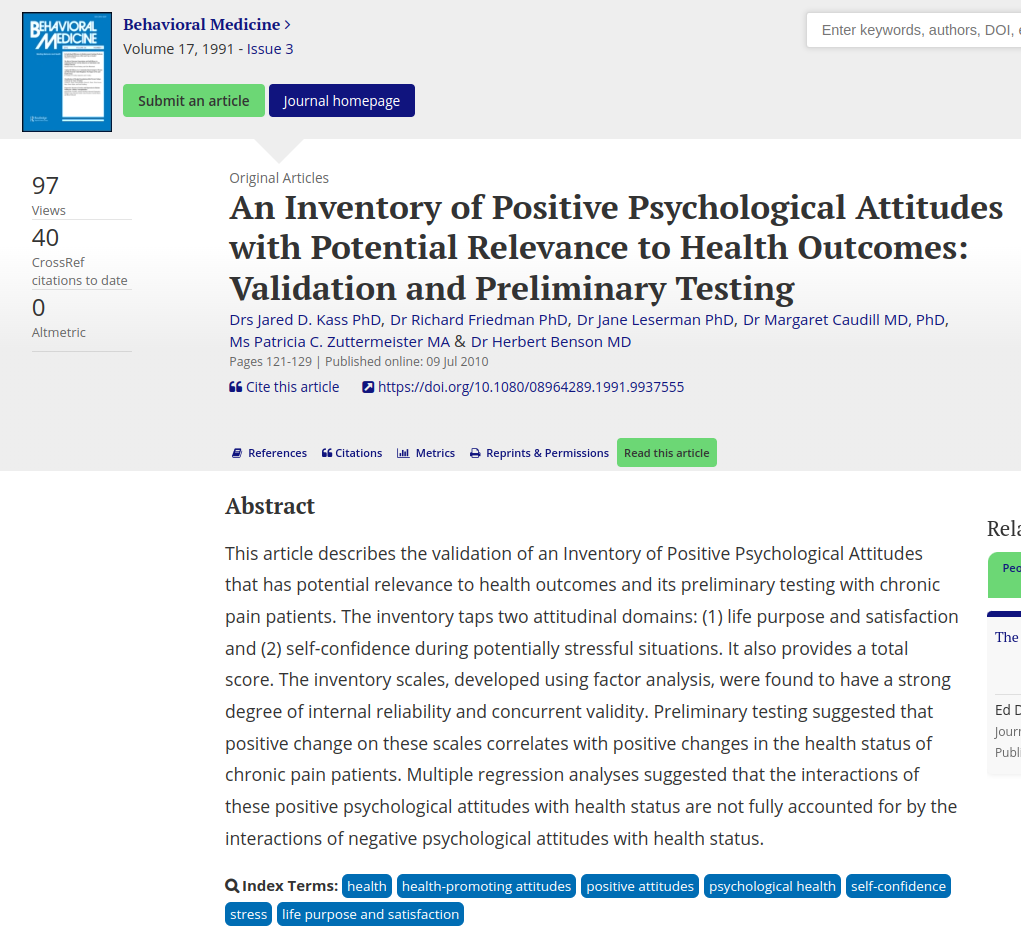This article describes the validation of an Inventory of Positive Psychological Attitudes that has potential relevance to health outcomes and its preliminary testing with chronic pain patients. The inventory taps two attitudinal domains: (1) life purpose and satisfaction and (2) self-confidence during potentially stressful situations. It also provides a total score. The inventory scales, developed using factor analysis, were found to have a strong degree of internal reliability and concurrent validity. Preliminary testing suggested that positive change on these scales correlates with positive changes in the health status of chronic pain patients. Multiple regression analyses suggested that the interactions of these positive psychological attitudes with health status are not fully accounted for by the interactions of negative psychological attitudes with health status.
An Inventory of Positive Psychological Attitudes with Potential Relevance to Health Outcomes: Validation and Preliminary Testing
Publication
Behavioral Medicine
Volume 17, 1991, Issue 3
Abstract
Web and Email Links
Related Listings
Journal
Journal of Research and Development in Education
Evaluated self-esteem and locus of control in a group of high school students prior to, during, and following a single academic year. Using a randomized, crossover experimental design, 26 Ss were exposed to either a health curriculum based on elicitation of the relaxation response (RLR) and then a follow-up period, while 24 were assigned to a control health curriculum and then the RLR. Psychological testing was conducted using the Piers-Harris Children's Self Concept Scale and the Now […]
Journal
Frontiers in Aging Neuroscience
Numerous studies have documented the normal age-related decline of neural structure, function, and cognitive performance. Preliminary evidence suggests that meditation may reduce decline in specific cognitive domains and in brain structure. Here we extended this research by investigating the relation between age and fluid intelligence and resting state brain functional network architecture using graph theory, in middle-aged yoga and meditation practitioners, and matched controls. Flui […]
Journal
Annals of the New York Academy of Sciences
Stress is a well-known risk factor in the development of addiction and in addiction relapse vulnerability. A series of population-based and epidemiological studies have identified specific stressors and individual-level variables that are predictive of substance use and abuse. Preclinical research also shows that stress exposure enhances drug self-administration and reinstates drug seeking in drug-experienced animals. The deleterious effects of early life stress, child maltreatment, a […]

